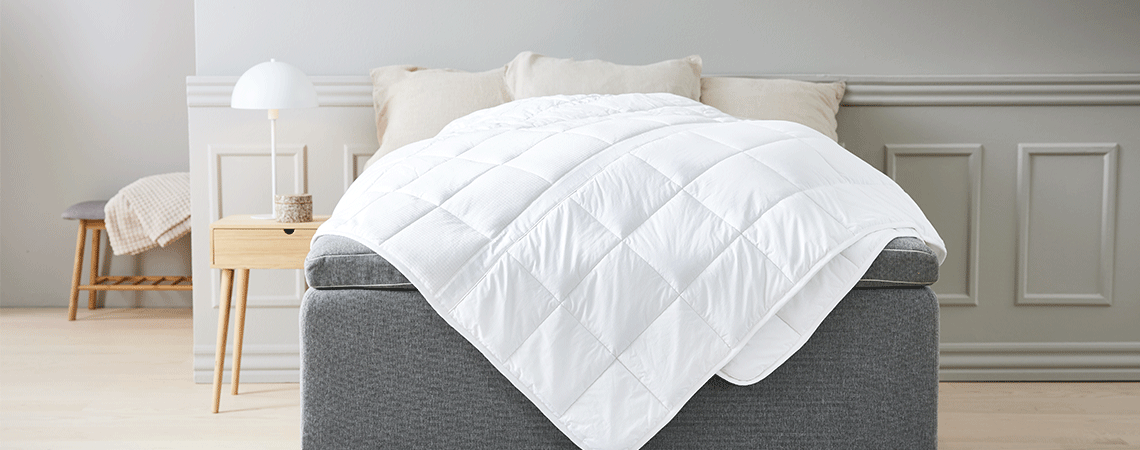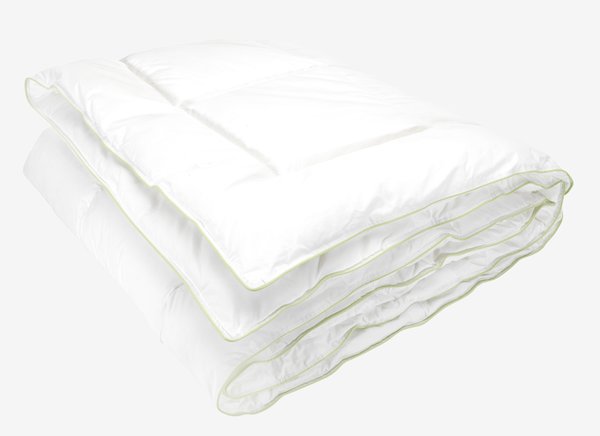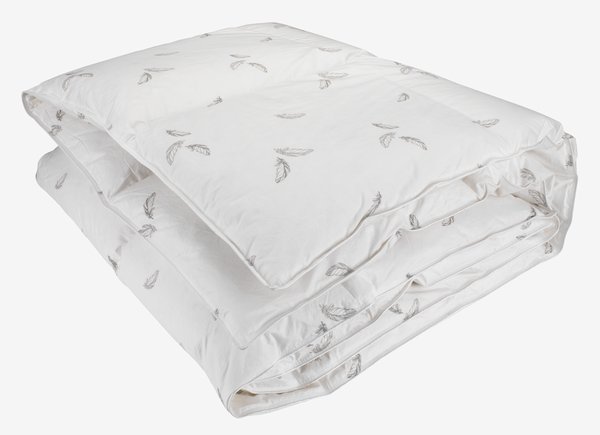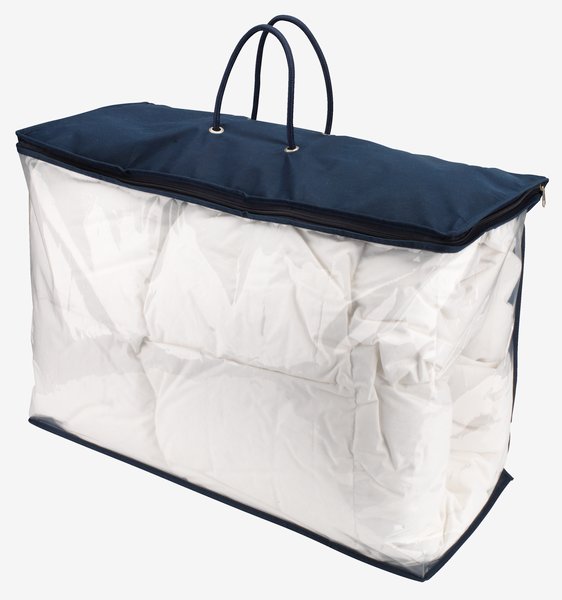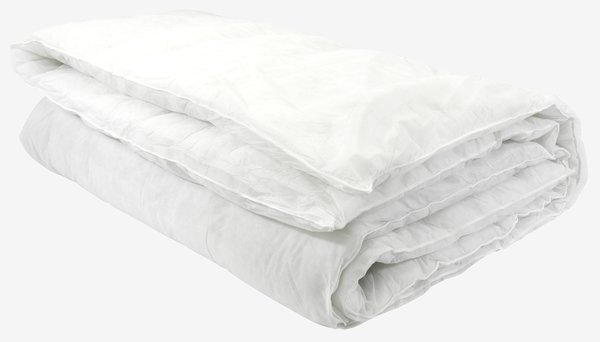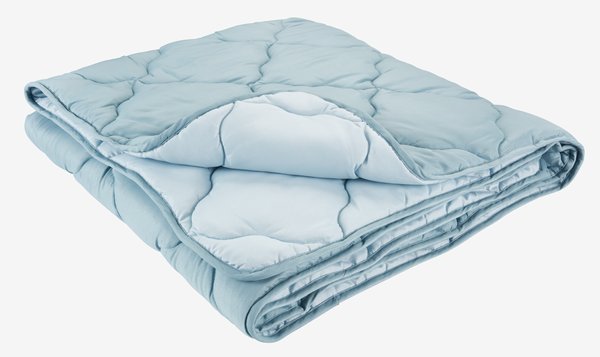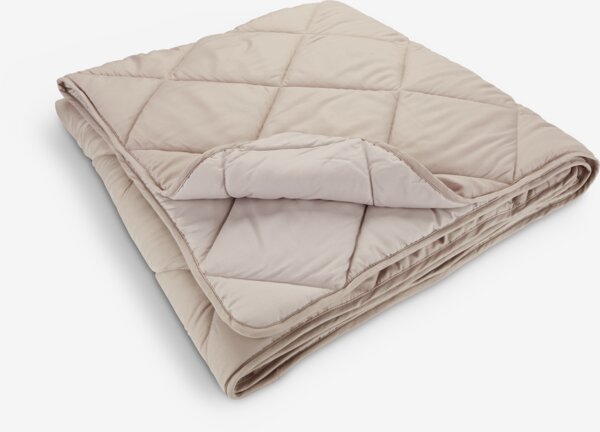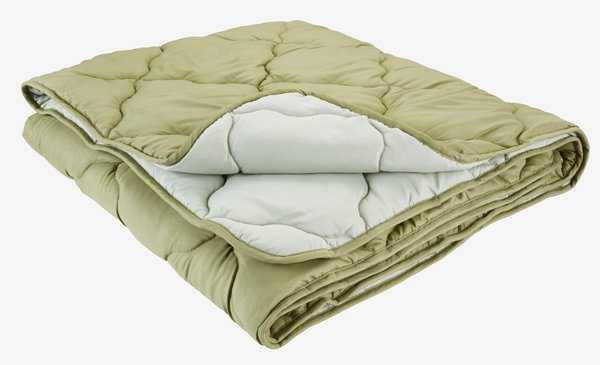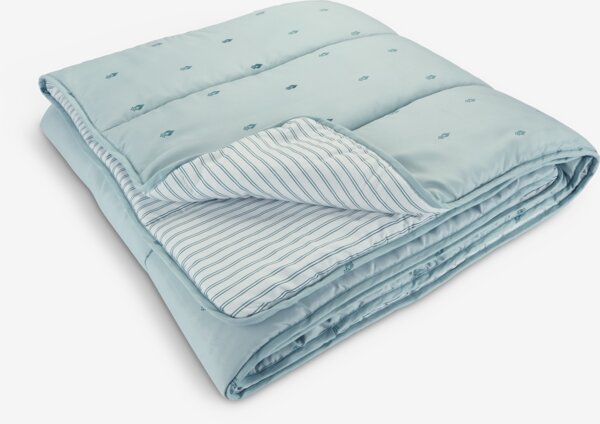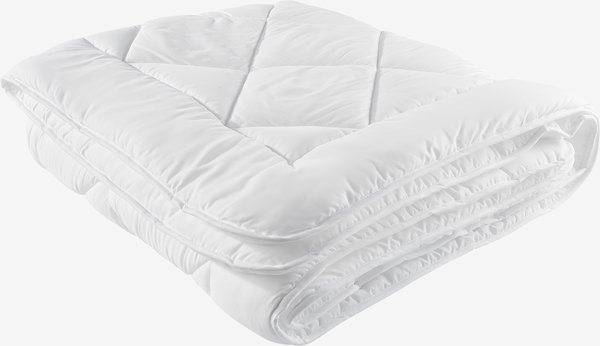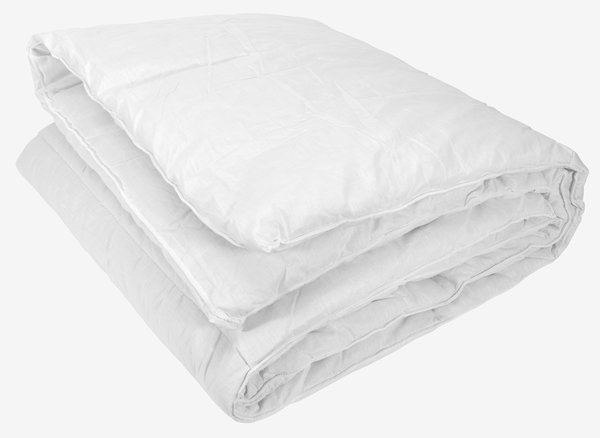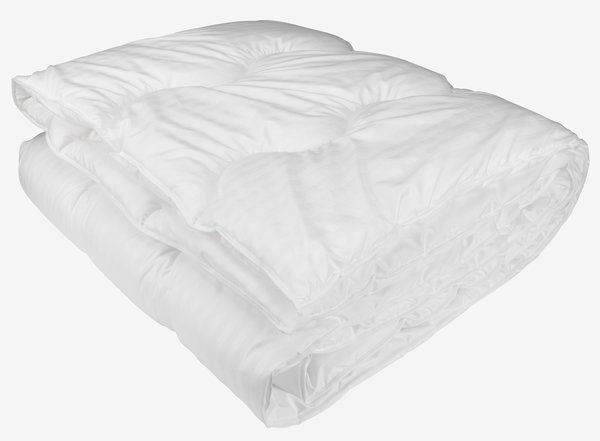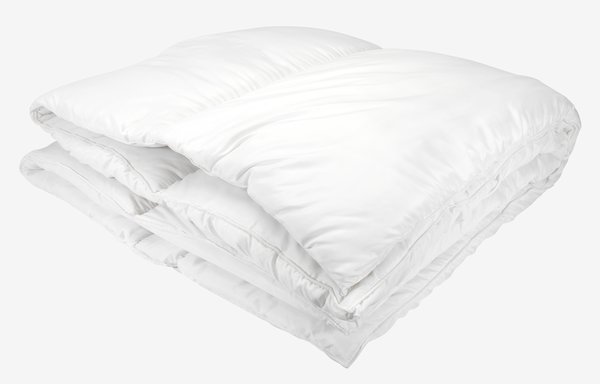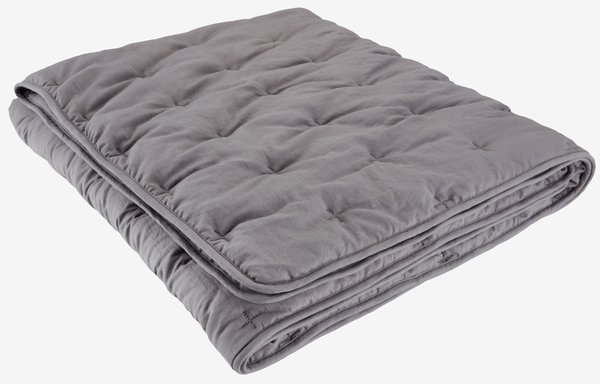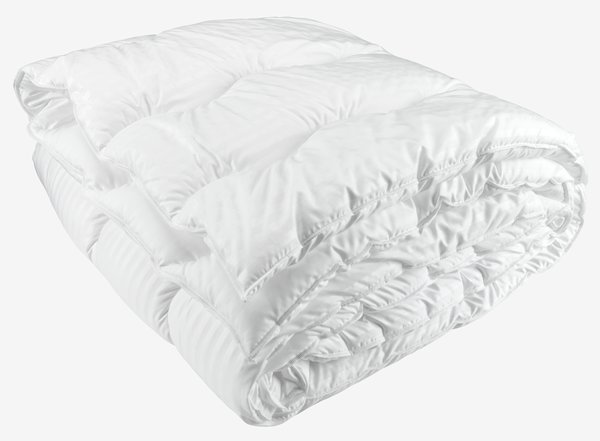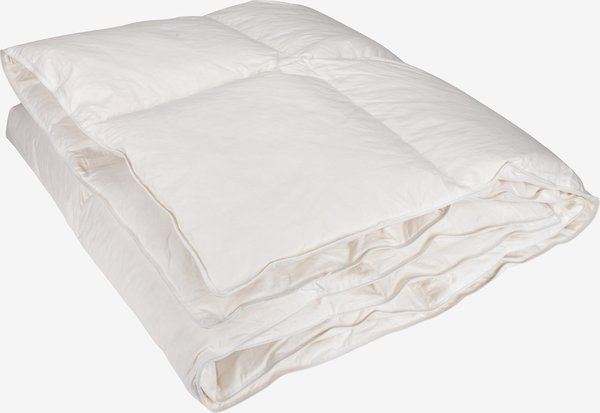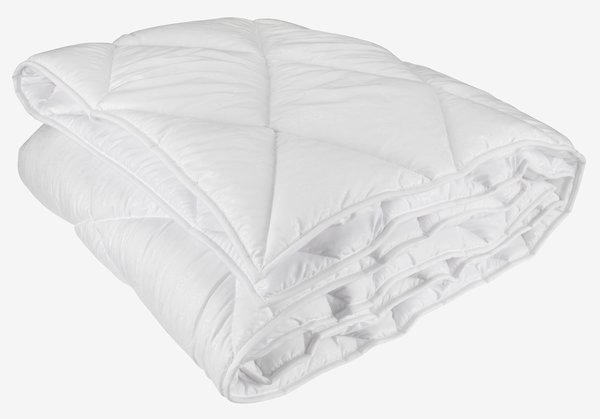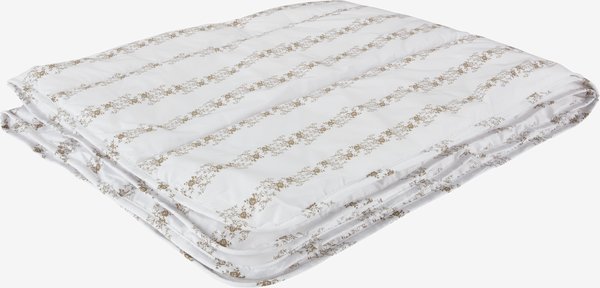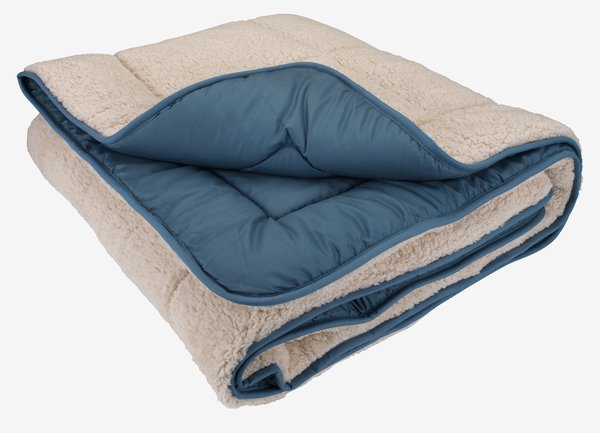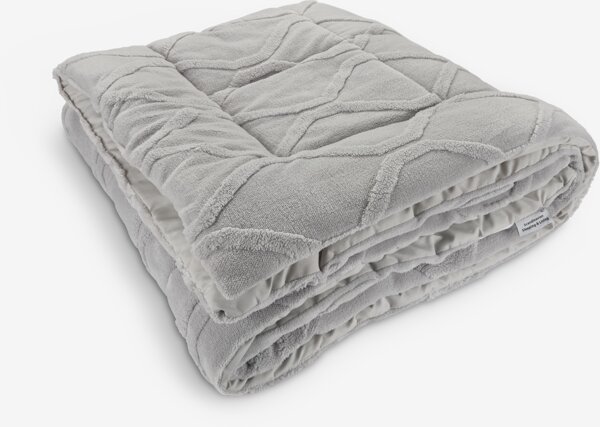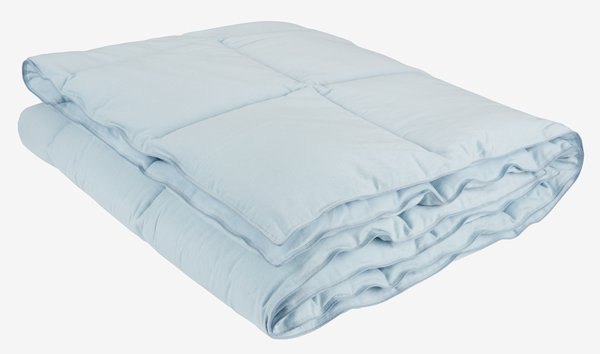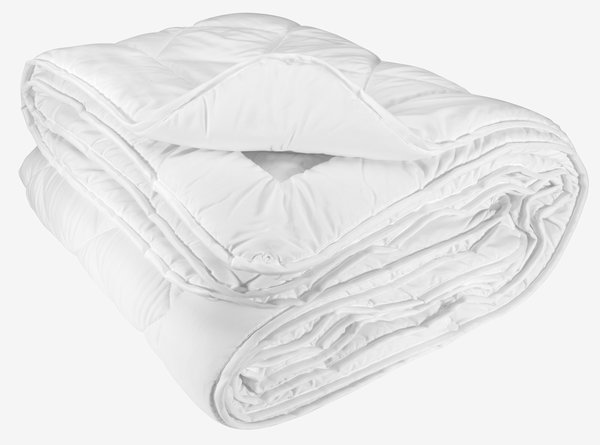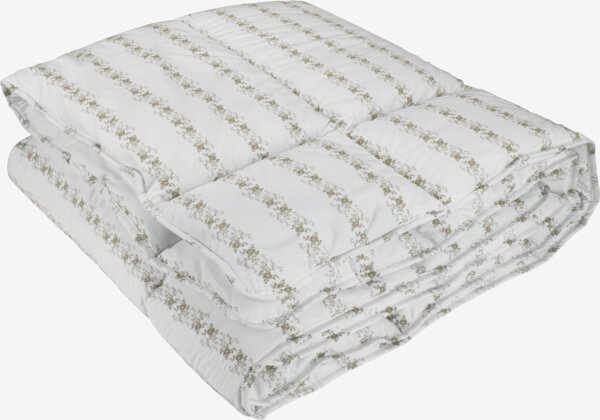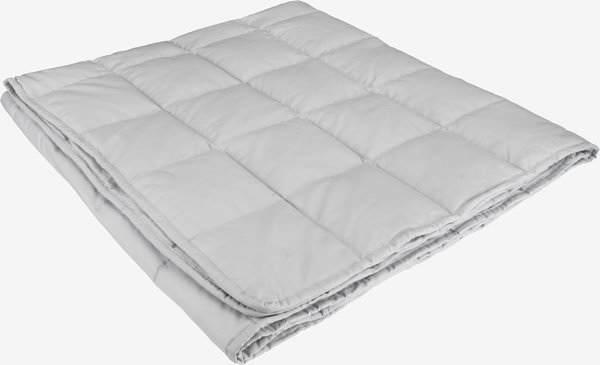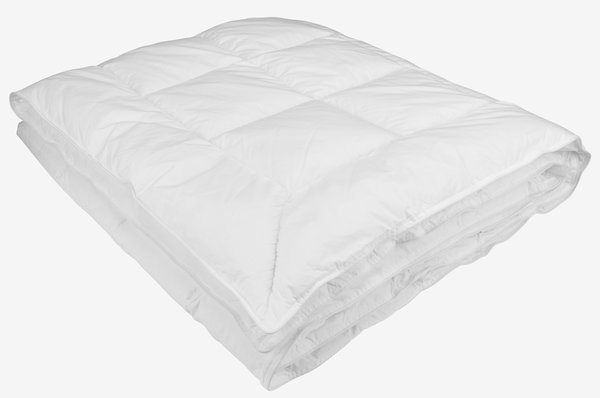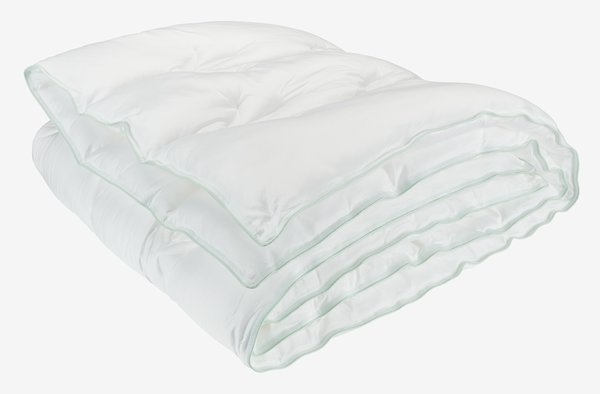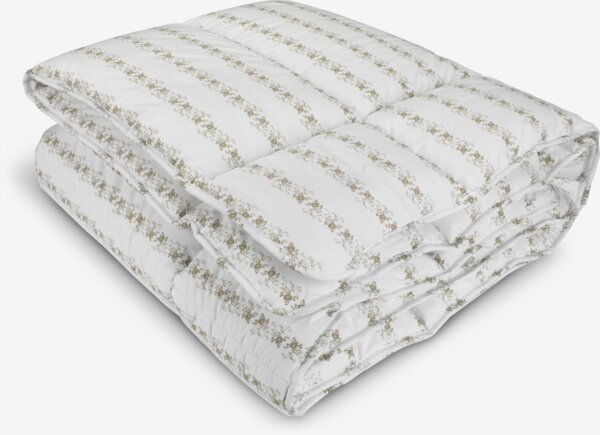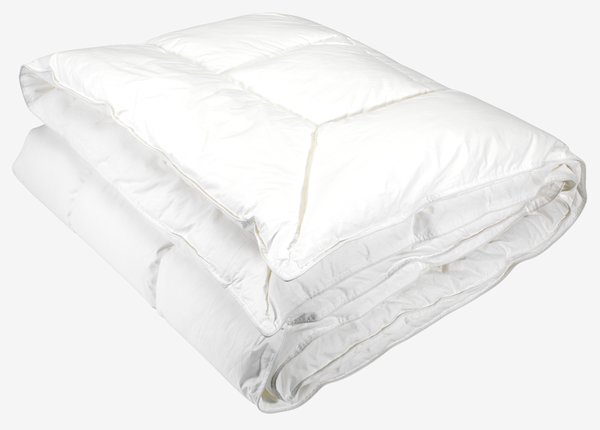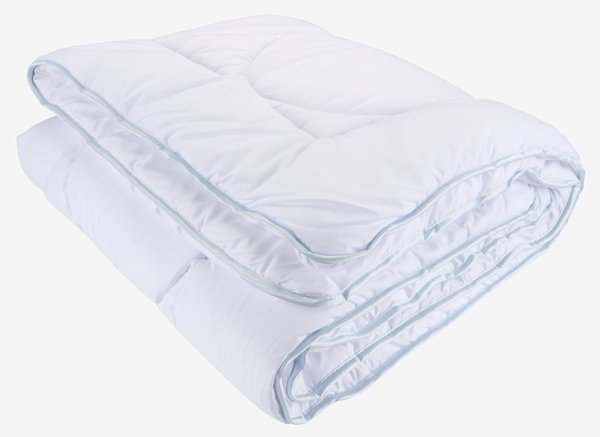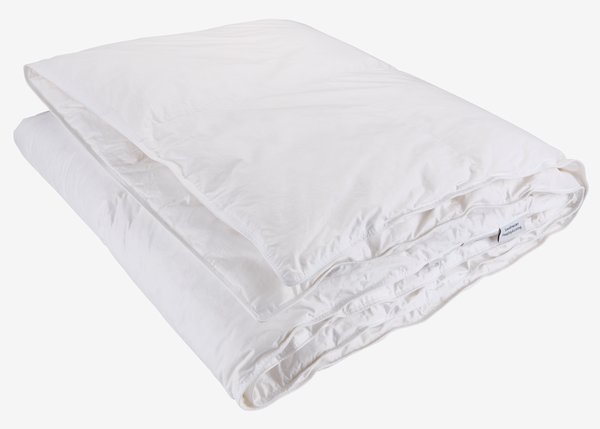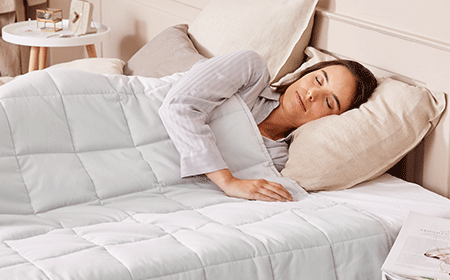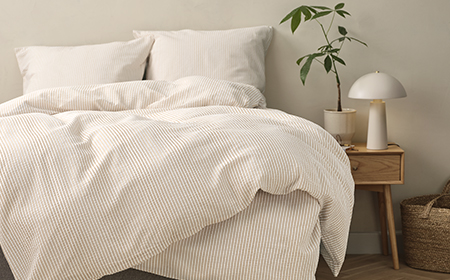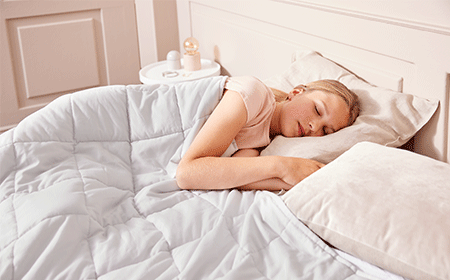Knowing when to replace your duvet isn’t always straightforward. The average duvet lifespan depends on many factors – but as a general rule, you should replace your duvet every 5 to 10 years.
The main factor when it comes to the longevity of your new duvet is its quality. This applies to all types of duvets, whether they have natural filling or fibre filling. Other important factors that impact duvet lifespan include:
- How well you take care of your duvet in your everyday life
- Your sleeping situation and habits – if you toss and turn or sweat a lot during the night, it may wear out the duvet more quickly
- How often you air out or wash your duvet – if you do not regularly do this, or if you use the duvet again before it has dried off after a wash, the duvet’s lifespan will also be shortened
Regardless of the quality of your duvet and how well you care for it, a 5–10-year lifespan is a generally realistic timeline for a PLUS or GOLD duvet. Once your duvet approaches the 10-year mark, it may likely be time for you to consider replacing it with a new duvet.
How do you know when to replace your duvet?
If you’re uncertain about when it’s time for you to replace your duvet, you should pay attention to and closely consider the following four indicators:
- Filling volume
Check if the filling maintains its original volume, and if the duvet feels as plump as when you first bought it. - Clumped filling
Ensure that the filling is evenly distributed throughout the duvet and not clumped together in certain areas. - Duvet lining
Watch out for small holes in the fabric, as they can cause filling to escape, especially as they grow in size or number. - Duvet appearance
If your duvet has visible stains or discolouration that won’t wash out, it's time to replace it.
When your duvet begins to show clear signs of wear and tear, it's not just a matter of appearance. As its condition deteriorates, so does its functionality. For example, if the filling starts clumping in certain areas, it compromises the duvet's insulation properties, resulting in reduced warmth compared to when it was new. In such a state, a seemingly cool night can quickly become uncomfortably cold, largely due to the duvet's compromised condition.
If you want to know all about how to choose the perfect duvet, check out our ultimate guide: Which duvet should you choose?
What can you do to improve the durability of your duvet?
Proper care can significantly extend the lifespan of your duvet, regardless of its quality. By following these steps, you can maintain its durability and preserve its volume for longer:
- Daily maintenance
Shake your duvet thoroughly but very gently every day to maintain the resilience of its filling. Avoid vacuuming or pounding on it, as this can easily damage the filling. - Air circulation
Allow your duvet to air out daily, and avoid immediately covering it with a bedspread after waking up to prevent any potential issues with moisture. For optimal freshness, if it’s an option for you, hang it outside to dry out in the breeze a few times a week. - Reviving the filling
Over time, the filling may become compressed. To expand it again, place the duvet in the dryer with a couple of dryer balls, following the instructions on the washing label. - Regular washing
If your duvet is washable – refer to the washing label on your duvet – wash it two to four times a year, carefully following the instructions on the label. Ensure it is completely dry before returning it to your bed. To confirm dryness, weigh the duvet before washing and compare it to its post-drying weight to ensure all moisture is released.
What is the connection between a duvet’s quality and its lifespan?
The lifespan of your duvet depends not only on how you care for it but also on its quality. Duvets made with higher-quality materials generally last longer and perform better over time, while your everyday maintenance habits, such as how often you gently shake or pat the filling and thoroughly air it out, also play a role. At JYSK, we offer extended guarantees on duvets within two of our quality ranges:
- PLUS duvets: 5-year guarantee for both natural and fibre duvets
- GOLD duvets: 10-year guarantee for both natural and fibre duvets
Learn more about JYSK’s quality ranges and the price levels of duvets across our assortment.
Explore our full duvet assortment online, or visit your local JYSK store, where our staff are always ready to help you find the right duvet when it’s time for a replacement.
